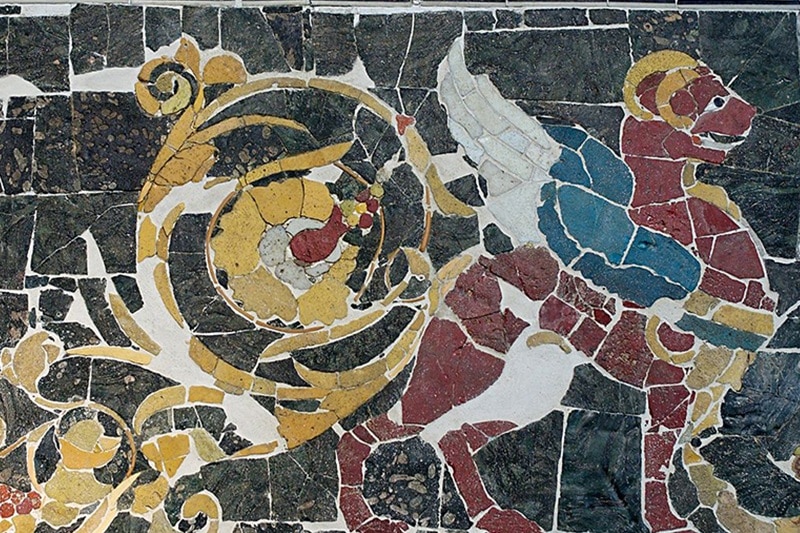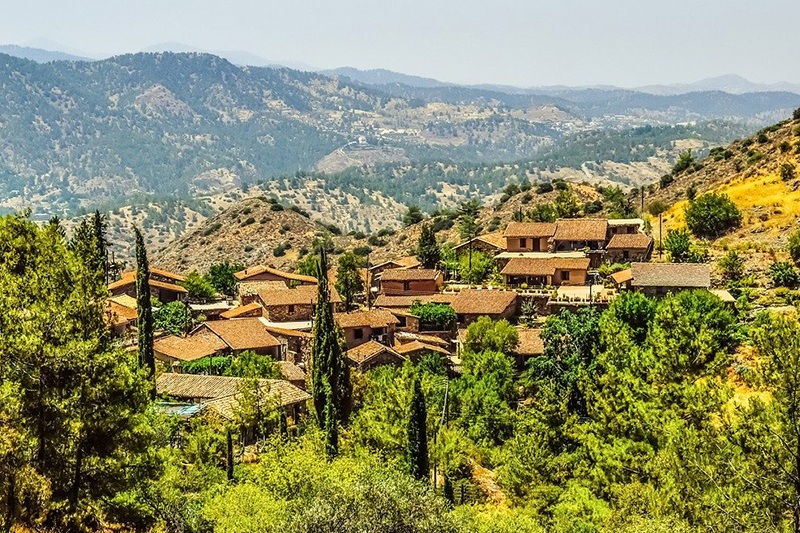Welcome to Nicosia, Cyprus, and discover the capital of the “Jewel of the Mediterranean”! Find out what locals and expats value about living in Nicosia, also known as Lefkosia. The city offers a rich history, lots of shopping opportunities, the best schools, and universities and the most modern hospitals on the island, as well as only a few tourists.
This week’s Property Experts Cyprus article has all the Nicosia facts! Despite its complex history, today, Nicosia is a vibrant place full of new projects and business opportunities.
Cyprus’ capital is increasingly attracting expats, who are drawn in by the beauty of the place, the cost of living, and the already well-established expatriate community. Here’s everything you need to know about this fascinating city!
History
Nicosia has been inhabited for more than 4,500 years when the first settlers came to the fertile plain of Mesaoria. For a long time, the main activity of the town inhabitants was farming, as there is no direct access to a river or the sea, which promoted trade.
In the 4th century AD, the town became home to a relatively prosperous and sophisticated Christian society. This is demonstrated by the relics of several basilicas with “opus sectile” decorations, along with marbles decorated with high relief.

During the Medieval Times, Cyprus was occupied by the UK, France, and Italy. In 1567 Venetians built new fortifications of Nicosia, which are well-preserved until today. The new walls took the shape of a star with eleven bastions.
In 1974, there was an attempted coup by the Greek military to unite Cyprus with Greece. This coup started the invasion of the island by the Turkish army. In 1975, the Turkish Cypriot community declared the Turkish Federated State of Cyprus in the area which they occupied. They claimed their independence as the Turkish Republic of Northern Cyprus in 1983.
Since then and until today, the northern half of Nicosia – remember the city is shaped like a star – marks the Turkish part of the city, while the southern part remains Greek. The two parts are separated by a UN buffer zone. The border is marked by man-high walls, regular gates, oil barrels, and sometimes abandoned buildings with bullet holes and graffiti.
It is also referred to as “the green line” because, during the conflict, the British forces in Cyprus simply drew a line with a green pencil on the map to divide the capital and de-escalate the dispute.
However, in recent years, a rapprochement is taking place. In 2003, the Ledra Palace and the Ayios Dometios/Metehan crossing were opened. And in 2008, Ledra Street crossing, one of the major shopping venues of the city, was also opened.
The crossing at the checkpoints is fairly quick and simple, as long as you bring your passport and have the necessary visa, in case you need one.
Nicosia – Cyprus Capital
Nicosia (Greek: Λευκωσία, romanized: Lefkosía) is the largest city, capital, and the seat of government of the Republic of Cyprus. It is located near the Mesaoria plain, on the banks of the River Pedieos. After several occupation periods, it has been the capital of the Republic of Cyprus in 1960, and it is the most southern EU capital. More than 300,000 people call Nicosia their home.
The Larnaca International Airport is a 45-minute drive away. And it takes about 1 hour to relax by one of the many wonderful Cyprus beaches, which are among Europe’s finest.
In the northern Turkish sector, you can even pay in Euros for most things and the prices are quite reasonable. It is ideal for shopping and enjoying culinary delicacies. There are many markets with an abundance of choices. And you can also admire the gorgeous Selimiye Mosque, a former Gothic church.
In the southern Greek sector, you will find a laid-back yet lively atmosphere and the main vibrant street and shopping heaven – Ledra. The ethnological museum house (The Hadjigeorgakis Kornesios Mansion) is a great place to start learning about the ancient civilizations that once chose this island as a home, and the treasures of architecture, art, and crafts that they built there.
Moreover, in the southern part, the Cyprus Museum, the Byzantine Museum, and many restaurants await your visit. Don’t forget to sip on the famous Cypriot coffee at a street cafe. There is also the ancient Famagusta Gate, named after the Famagusta district in Cyprus.
The Cyprus Museum of Natural History just outside of the city is also a great destination for adults and children alike, offering a range of fascinating exhibitions on plants and animals, fossils, and minerals. Finally, the cultural life of the city wouldn’t be complete without its many theaters, dance, and music festivals that happen throughout the year.
A City of Business
Besides its legislative and administrative functions, Nicosia has established itself as the island’s financial capital and international business center. In 2018, Nicosia was the 32nd richest city in the world, according to relative purchasing power.
One of the things that attract a lot of expatriates to Nicosia is the business opportunities. The city has the advantage of being a part of the European Union, with lower taxes and other business incentives. The attractive corporate tax is currently only 12.5%, which makes Nicosia a perfect city to consider a Cyprus company set up, for example, a Cyprus Ltd.
Expats in particular value the many job opportunities in Nicosia, mainly in the banking and tourism sector, as consultants or English teachers. As Limassol, the biggest port city in Cyprus is nearby, Nicosia is an important transportation hub for the import and export of products. There is also an extensive service sector, and the city is home to the headquarters of many local financial institutions. Moreover, since Nicosia is the capital city, the Government of Cyprus is also located there.
So if you’re hoping to either start a business or find a job in Nicosia as a non-Greek or Turkish speaker, there are plenty of opportunities. A lot of firms are looking for qualified foreigners to come and work for them.
Real Estate in Nicosia
If Nicosia attracts expats, it’s also because it is a cheap and beautiful city that grants them the opportunity to find a great place to live…without having to pay millions. Compared to most of the European Union, the price of real estate in Cyprus is a bit more affordable. In particular, compared to the larger investment properties along the coastline of Cyprus, which are often purchased by foreigners as part of the Cyprus permanent residency program.
And while you may expect the capital city to be more expensive, it actually remains very competitive, especially compared to other European capital cities. In fact, you can choose from a variety of properties for sale in Nicosia – from beautiful apartments to lovely houses.
Same as the rest of the island, Nicosia also offers a variety of real estate investment opportunities, including some new construction projects in Cyprus. Buying an apartment or house in Cyprus is fairly easy and straightforward, even for foreigners. Properties for sale in Nicosia typically have heating, unlike the apartments and houses along the coast, which are often holiday homes. Besides, properties in Nicosia are often rented long-term.
Another aspect worth mentioning about Nicosia is that it isn’t really a tourist city. Visitors often prefer sandy beaches during their short holiday times. Although Nicosia is a great spot for culture and history, tourists do tend to (unjustly) overlook the city.
With all these benefits to living in Nicosia, it’s no wonder it has become such a popular city for expats. Many people, locals, and foreigners commute daily. They live in the Turkish northern part, where everything is a bit more affordable, and work in the Greek southern part. Consider joining them and enjoy your life in Cyprus with its’ Mediterranean charm and many benefits.
Nature and Weather
Located in the central part of the island of Cyprus, Nicosia isn’t close to the beaches that make Cyprus famous…but it makes up for it with some beautiful national parks. Venture just outside the city to find stunning landscapes, for example, the Athalassa National Forest Park, the Grammiko park, and the Troodos mountain range.

You may be surprised to hear that it gets quite hot in Nicosia during the summer, as there no ocean breeze. During the summer months between June and August, temperatures can climb up to 38°C. The winters are fairly mild, with the lowest temperatures between December and February between 4°C to 18°C.
Education
In terms of formal education, Nicosia has a lot to offer, too. In fact, the best schools and universities in Cyprus are located in Nicosia. The local public schools are accessible for free to any inhabitant of the city.
At the same time, there are also a lot of private international schools that teach entirely in English. The level of education there can be very high, depending on the school, as can the prices! Expatriates coming to the city with children will find an abundance of school options, British or American, and for all ages.
Regarding higher education, Nicosia has a total of eight universities in the city alone, offering courses in every discipline imaginable. You will find Bachelor and Master degrees at the pulse of time, for example, a Master in digital currency (blockchain technology).
When it comes to classes in English, you will also find several options, in particular at private universities. The private Cyprus International University and the private European University Cyprus are among the most well-known and reputable institutions for higher education in Nicosia.
Healthcare in Nicosia
One of the great things about choosing Cyprus as your home base is that it is part of the EU. As such, medical treatment is free for any expatriate from another European Union country, as long as they have state health insurance. Non-EU nationals will find the cost of healthcare in Cyprus generally much more affordable while offering a high-quality standard. The Apollonion Private Hospital and the Evangelistria Medical Centre are among the best hospitals in Cyprus.
This has made Cyprus a mecca for medical tourists. The excellent qualification of doctors, state-of-the-art medical equipment, and personal service at an affordable price attract many foreigners. You will also be fortunate to receive medical treatment in English relatively easily, as a lot of doctors and other medical professionals speak it fluently.
You’ll also have a choice to seek medical treatment in private clinics and hospitals, which are particularly appealing to non-European Union citizens. With the growing popularity of medical tourism among the Chinese, more and more hospitals in Cyprus also offer diagnosis and treatment in Chinese language.
If you elect Cyprus as your home for the coming years, you will be able to get a permanent residence permit, which will give you access to free health care. If you opt for a temporary residence permit, public healthcare will come at a cost, and you might want to consider private health insurance.
The Takeaway
Nicosia in Cyprus is not just an interesting place from a cultural and historical perspective. If you want to move to Cyprus, you will find that Nicosia is a vibrant city, where two cultures can be experienced like nowhere else.
Take advantage of the low living costs in the northern part and many job opportunities with higher salaries in the southern part. Avoid the tourist crowd in this city, and actively relax in the nearby nature parks in and around the Troodos mountain range. If you have children or are studying yourself, you will also find the best schools and universities in this city.
Property Experts Cyprus is your trusted platform for everything around living on the beautiful island of Cyprus. Whether you are looking for properties for sale in Nicosia or in another district – we have all the information you need and connect you to the best opportunities on the island!


